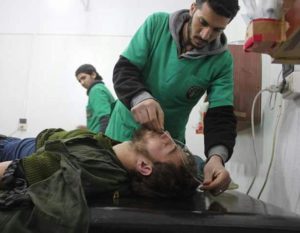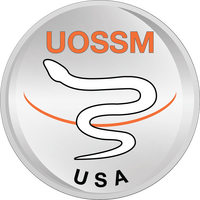It is estimated that there are 400,000 civilians remaining in the besieged area of Ghouta.
Meanwhile, in other besieged areas throughout Syria, including Waar, Homs, Deir Al Zour, and Madaya, thousands are suffering immensely with a health crisis as there is little or no access, to basic necessities including food, and medical care.
In Waar, Homs, where there are approximately 70,000 people living under siege, there were two cases of severe malnutrition and 14 cases of intermediate malnutrition reported by medical staff last week.
In Madaya, where approximately 42,000 people are besieged, a third civilian has died from a lack of access to dialysis treatment. There are many patients in critical condition that require immediate medical care.
Dr. Khaula Sawah, CEO of UOSSM USA said, “Hundreds of thousands of people are suffering in the besieged areas throughout Syria, we must not forget them. They have little or no access to basic human needs including food and medical care. This is unacceptable, we call on the international community to allow aid and food into these areas otherwise the number of deaths will soon rise dramatically.”



